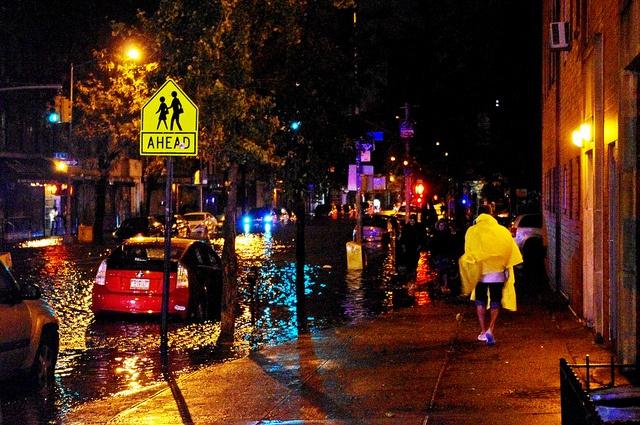
By Teresa Fogelberg, Global Reporting Initiative
Geneva and Paris are two grand cities that are closely connected. My last visit to Geneva was a few weeks ago for the 4th Annual UN Forum on Business and Human Rights, where business and government leaders met to discuss how the private sector can promote and protect human rights. Right now, I’m in Paris for COP 21, where some of those same leaders are here to agree upon their contributions to the global 1.5 to 2 degree retention effort. Geneva and Paris are close by, not only geographically, but also in linked causes.
Already in 2011 leaders like Mary Robinson and the UN Commission on Human Rights introduced the concept of climate justice and reminded us that climate change is about suffering – about the human misery that results directly from the damage we are doing to nature. They reminded us of the UN Climate Change convention text that speaks about “the specific needs and special circumstances of developing country Parties, especially those that are particularly vulnerable to the adverse effects of climate change.” In the same year the United Nations Human Rights Council adopted two resolutions which state that global warming “poses an immediate and far-reaching threat to people and communities around the world and has implications for the full enjoyment of human rights.”
I am hopeful that this week will see a binding agreement emerge from the discussions here in Paris. Even so, we should all recognize that the real work begins after this, as the world’s leaders decide what actions are necessary to follow through on their commitments. For the private sector this means first understanding, managing and communicating the contribution to climate change, working to mitigate and adapt to those impacts and doing so in a manner that respects the dignity and rights of people.
Why the climate change discussion must go beyond emissions
Climate change has real and measurable human impacts and equitable solutions to this challenge will require businesses and governments to appeal to their sense of responsibility, accountability and justice. The difficulty lies in finding a fit between climate change and human rights policy. Measuring mitigation and adaptation by the private sector is done through hard-nosed, easily quantifiable methodologies such as the Greenhouse Gas Protocol, developed by the World Resources Institute. These methodologies are highly valuable but measuring social and human rights impacts typically involves other approaches, developed by social scientists, economists and anthropologists, which are not often incorporated.
This is unfortunate because when businesses view climate change through a human rights lens, they create a better understanding of how operations effect the lives of people. The good news is that sustainability reporting can help. Thousands of businesses in more than 90 countries turn to GRI to understand their climate-related risks, their human rights risks and the other sustainability challenges that affect them. GRI Sustainability Reporting Standards bring climate change and human rights together into one methodology that organizations can use to measure, manage and communicate their sustainability risks and opportunities. A few weeks ago in Geneva, I had the honor of officially releasing our latest linkage document, which lays out the very strong connections between the GRI G4 Guidelines and the UN Guiding Principles on Business and Human Rights. This is one example of how organizations can use the breadth of sustainability issues covered in G4 to identify and then address specific areas of risk in more detail and potentially uncover new opportunities to contribute to sustainable development.
I am here in Paris this week because GRI is leading a discussion about the important role that non-state actors, like businesses must play in solving the climate challenge. GRI is holding two events at COP 21: Climate risk, data and decision making for business and governments (a closed event), and Spotlight on Climate Change, Human Rights and Sustainable development – role of Business. I also spoke at the Closing Plenary of the 6th Annual Sustainable Innovation Forum (SIF15), hosted by UNEP and Climate Action.
There is real momentum here at COP 21 but we must stay focused on the impact that needs to be delivered as a result of any agreement. The agreement will probably contain strong language on monitoring, measuring and reviewing. This is where I see huge potential for a collaboration between State and non-State actors to pave the way for transformational change.
Teresa Fogelberg is GRI’s Deputy Chief Executive and heads the Government Relations, International Organizations, Development and Advocacy Team, which works to enable smart policy on sustainability around the world.
TriplePundit has published articles from over 1000 contributors. If you'd like to be a guest author, please get in touch!














